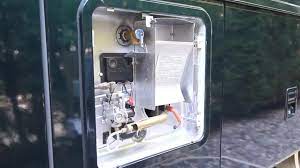
Do tankless water heaters work for RVs?
When it comes to owning and traveling in recreational vehicles (RVs), having a reliable and efficient source of hot water is essential. Traditional water heaters with tanks can take up valuable space, consume more energy, and run out of hot water quickly. As a result, many RV owners are turning to tankless water heaters as a more efficient and convenient solution. In this article, we will explore the functionality and benefits of tankless water heaters for RVs.
How Do Tankless Water Heaters Work?
1.1. Basic Functionality:
Tankless water heaters, also known as on-demand water heaters, provide hot water as needed, without the need for a storage tank. These systems heat the water directly as it flows through the unit, using either gas burners or electric heating elements. When a hot water tap is turned on, cold water travels through the unit and gets rapidly heated, delivering a continuous supply of hot water.
1.2. Heat Exchanger Technology:
Tankless water heaters use advanced heat exchanger technology to heat the water efficiently. Gas tankless models utilize a gas burner, while electric models utilize heating elements. The heat exchanger brings the cold water to the desired temperature by transferring heat from the heat source to the water.
- Advantages of Tankless Water Heaters for RVs:
2.1. Space Efficiency:
One of the primary advantages of tankless water heaters for RVs is their compact size. Unlike traditional tank-based water heaters, tankless models do not require a large storage tank, saving valuable space in the 110 volt tankless water heater for RV. This is especially crucial in RVs where space is limited, and every inch counts.
2.2. Endless Hot Water Supply:
Traditional water heaters have a limited capacity and can run out of hot water, especially when multiple faucets or showers are being used simultaneously. Tankless water heaters, on the other hand, provide an endless supply of hot water. As long as the unit is appropriately sized for the RV’s needs, hot water will be available whenever it is required.
2.3. Energy Efficiency:
Tankless water heaters are highly energy-efficient compared to traditional tank-based heaters. Since they heat water on-demand, they do not constantly heat and reheat a large amount of water stored in a tank. This eliminates standby energy losses, resulting in significant energy savings. RV owners can benefit from lower fuel or electricity consumption, reducing their overall energy costs and environmental footprint.
2.4. Longer Lifespan:
Tankless water heaters tend to have a longer lifespan compared to traditional tank-based heaters. While traditional heaters may last around 10 to 15 years, tankless models can last up to 20 years or more with proper maintenance. This extended lifespan can be particularly beneficial for RV owners who often use their vehicles for extended periods.
III. Considerations for Choosing a Tankless Water Heater for an RV:
3.1. Fuel Type:
When selecting a tankless water heater for an RV, it’s crucial to consider the fuel type available. RVs typically use either propane gas or electricity. Tankless water heaters are available in both gas and electric models, so choose the one that aligns with your RV’s fuel source.
3.2. Flow Rate and Sizing:
Determining the appropriate flow rate and sizing of a tankless water heater is essential for optimal performance. Consider the number of hot water fixtures in your RV and the average simultaneous water demand. Consult the manufacturer’s specifications to choose a unit that can handle your RV’s hot water needs adequately.
3.3. Installation Requirements:
Proper installation is crucial for the optimal performance of a tankless water heater. RV owners should ensure that the chosen unit is compatible with their RV’s plumbing system.







